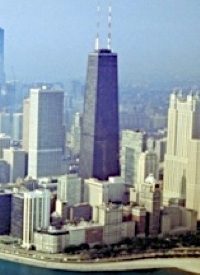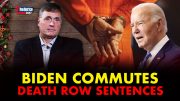
If you needed another example of public officials woefully unaware of restraints on government power, look no further than the city of Chicago. The Austin Weekly News reported on April 28th that State Representative LaShawn Ford (D) is calling for the deployment of National Guard units on the streets of the Windy City to deal with escalating gang violence. Ford wants the military to augment the 13,400 strong Chicago Police Force, which is already the second largest in the nation.
Ford, along with fellow State Rep. John Fritchey (D), is encouraging Illinois Governor Pat Quinn to work with Chicago Mayor Richard M. Daley to militarize the streets of the nation’s third-largest city. In a press release, Ford reasoned that local law enforcement should be backed up with armed forces because “we cannot accept it as a normal situation that someone is shot and killed in Chicago almost every day, with the West Side citizens whom I represent being affected at a much greater rate.”
Sadly, based on Ford’s press release, it is apparent that he is not familiar with the Posse Comitatus Act of 1878 that strictly prohibits the deployment of federal armed forces from exercising normal state law enforcement functions. Proponents argue that the Posse Comitatus Act does not apply to Ford’s suggestion because the Act only prohibits National Guard units from direct involvement in local law enforcement when they are federalized, and Ford is requesting it be done solely under state authority. Such an argument overlooks the obvious fact that state national guards units are already federalized. For a long time, “state” National Guard units have been “state” entities in name only. Between the huge portion of federal funding for state guard units and the fact that units are actively deployed under federal direction in foreign war zones, the Founders’ ideas of state militias of old are as dead as the dodo bird.
Ironically, the state authority defense is clearly disingenuous, as supporters of the initiative specifically cite the foreign combat training of the Guard, under federal direction, as a chief reason to deploy them domestically. Rep. Ford actually believes the fact that these units will be coming back with war experience from the battle field is a good thing. “We know the U.S. troops have been winning the hearts and minds in Iraq, they stabilized those communities, those communities are safe and that’s what we want right here in Illinois for the National Guard to come in and help stabilize the community with the Chicago police department.”
Ford’s like-minded associate and former assistant attorney general, Rep. Fritchey, repeated similar sentiments. “As we speak, National Guard members are working side-by-side with our troops to fight a war halfway around the world. The unfortunate reality is that we have another war that is just as deadly taking place right in our backyard.” Yes, you read that correctly! The top advocates for deployment of National Guard units to conduct law-enforcement in a major U.S. city actually cite the war tactics of National Guard units as a benefit. Can these two actually want the same occupation strategy of “clear and hold” used on Iraqis and Afghanis to be used for Americans?
In the Chicago Tribune, The National Black Police Association (NBPA) reacted with outrage at Ford’s suggestion in an April 29th op-ed piece written by a member of NBPA who also served in the U.S. Marines:
A police department’s officers are trained to enable Constitutional due process safeguards. Armies are not designed with this purpose — armies are trained to kill.… [O]ur members know that there is stark difference between military duties and police duties.
Chicago Police Superintendent Jody Weis weighed in on Ford’s suggestion by reminding the people that the military does not operate under the same constitutional restraints as local law enforcement and mentioned the Kent State shootings in 1970 where National Guardsmen fatally shot four student protesters and seriously injured others (which, ironically, was just revealed by declassified FBI records to be instigated by a federal provocateur ). “[W]hen you mix military functions with law enforcement functions, there is sometimes a disconnect.” Weis then went on to display the same mindset that has contributed to the increasing violence by calling for “tougher gun control laws” which have been echoed by the Mayor of the city and other public officials.
Already referred to as the “U.S. gun control capital,” Chicago has banned the private ownership of handguns and rifles since 1982 with some of the most stringent gun laws in the country. The city’s excessive gun ban is currently under fire in the top Second Amendment case in the country, McDonald v Chicago, which is presently before the Supreme Court. And now, with nearly 30 years of failure and violence rising to astronomical proportions, local residents are left longing for the pre-gun control days with lower levels of violence.
Even with such blatant facts plainly staring them in the face, officials are ratcheting up their anti-gun rhetoric and renewing calls for more drastic efforts to strip citizens of the right to bear arms. Mayor Daley even advocated that globalist institutions like the World Court allow “plaintiffs” to sue U.S. gun manufacturers for exorbitant amounts during the Global Cities Forum at the University of Illinois-Chicago on Monday, April 26. Daley’s end goal being to effectively ban the production of guns for civilians globally. Not only does Mayor Daley refuse to face the obvious facts about his own city’s abysmal failure with gun control, he seeks to spread his misery around to the entire planet.
The unfortunate occupants of Chicago have a bleak future, indeed, as one public official after another seems committed to a policy of more government and fewer individual rights. The ideas of Daley, Ford, and their ilk for possible solutions are the “pick-your-poison” variety of more gun control or a police state lockdown on the city — with the strong likelihood that both scenarios will come to pass if they get their way. Could Chicago be only a glimpse of what the rest of America will eventually look like: a hyper-violent, militarized region constantly under martial law and plagued with civil unrest? If America continues to follow the same draconian policies as Chicago, then, regrettably, it seems the answer may be "yes."



